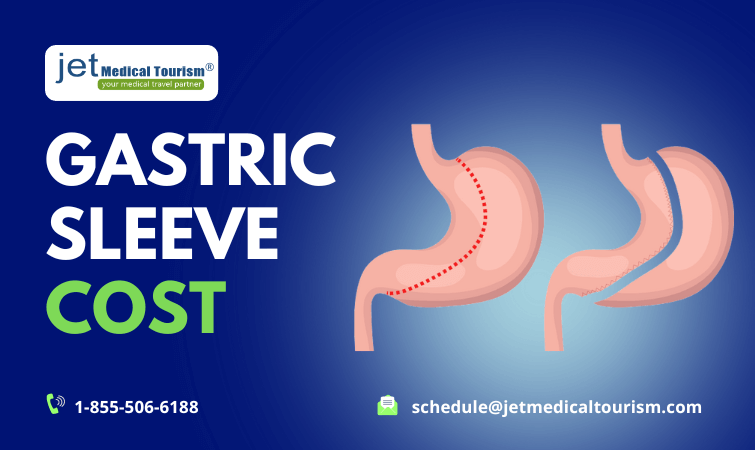10 Things I Wish I Knew Before Gastric Sleeve And Gastric Bypass
Embarking on the path of bariatric surgery is not just a medical decision; it’s a profound commitment to transforming your life. It’s a journey that extends far beyond the operating room, encompassing physical, emotional, and psychological dimensions of wellness. As you stand on the precipice of this life-changing decision, there are invaluable insights and lessons that can guide your path. While the journey is personal and unique, sharing these collective experiences can illuminate the road ahead. This blog aims to shed light on the most searched question- “10 things I wish I knew before Gastric Sleeve & Gastric Bypass“, along with the insights and reflections that aim to guide, inspire, and prepare you for what lies ahead.
#1 The Pre-Op Diet is Challenging
For 2-3 weeks before your surgery date, you’ll embark on an extremely restrictive pre-operative diet. This “liver shrinking diet” will limit you to 4-6 ounces per day of approved lean proteins such as chicken, turkey, eggs, and fish. Your vegetable intake will be confined to 1-2 servings of leafy greens or cruciferous options like broccoli and cauliflower, and the only beverages allowed are sugar-free clear liquids like water, black coffee, and plain teas. No starches, sugars, fats, dairy, or alcohol are permitted.
Feeling deprived, hungry, and fatigued on such a low-calorie, low-carb regimen is one of the most challenging parts of the pre-surgery experience. Intense cravings for forbidden foods and diet fatigue can be mentally and emotionally taxing. However, adhering to this diet is crucial for reducing the size of your liver and stomach volume, making the surgery easier, safer, and more successful.
#2 The Mental Side Matters
Bariatric surgery will necessitate a complete overhaul of your relationship with food and your body. The physical limitations of a smaller stomach pouch will force you to radically adjust your eating habits, hunger cues, and food associations. Addressing the mental and emotional components of this transition is as vital as the physical recovery.
Having the right psychology and mindset is key for making lasting lifestyle changes. Working with a therapist to cultivate a positive body image, finding healthy non-food coping mechanisms for stress, and reframing your associations with eating are invaluable steps. Joining a local support group can also provide encouragement and accountability from others navigating the same mental journey.
#3 Brace for Unsolicited Comments
Post-weight loss surgery, you might be surprised by the volume of questions, comments, and unsolicited advice from people in your life, including friends, family members, coworkers, and even strangers. Comments can range from positive to negative, questioning your decision or predicting future failure.
Even well-intentioned commentary can become exhausting. Having scripted, polite replies ready can help deflect unproductive conversations and maintain your focus on your health and wellness journey.
#4 The First Weeks Are Rough
One of the essential things that I wish I knew before gastric sleeve & gastric bypass is that one might experience pain, nausea, fatigue, and constipation, among other side effects. These initial weeks can be particularly uncomfortable as your body adjusts to its new normal.
Adhering to pain medication guidelines, staying hydrated, and giving your body ample time to recover are crucial steps during this period. Introducing solid foods too quickly can exacerbate nausea and vomiting, so follow your surgical team’s dietary recommendations closely.
#5 Getting Enough Protein is Tricky
After surgery, meeting your protein needs becomes a paramount challenge. Dietitians typically recommend aiming for 60-80 grams of protein per day by 6 weeks post-op.
With a significantly reduced stomach capacity and potential nausea, finding palatable high-protein options is essential. Liquids, shakes, smooth nut butters, pureed meats, or Greek yogurt can be good sources. Using a nutrition tracking app may also help ensure you’re meeting your nutritional goals.
#6 Tastes and Cravings Change
Post-op, many people find their taste preferences, cravings, and tolerances for certain foods dramatically change. Foods you once loved might become unappealing or even nauseating.
Embracing and exploring new food preferences, such as clean flavors and crunchy textures, can make adjusting to your new dietary requirements easier and more enjoyable.
#7 A Support System is Vital
Going through the experience of bariatric surgery alone is incredibly challenging. A robust network of support from friends, family, online communities, and medical professionals can provide invaluable assistance throughout your journey.
This support can offer motivation, celebrate your successes, and provide empathy and accountability during challenging times, making a significant difference in your ability to persist through obstacles.
#8 Celebrate Non-Scale Wins
While losing weight is a major goal of bariatric surgery, there are countless other “non-scale victories” to celebrate along the way. Improvements in energy levels, sleep quality, self-esteem, health markers, mobility, and clothing fit are all significant milestones worth recognizing.
#9 Keep Realistic Expectations About the Outcome
While bariatric surgery can produce dramatic and life-altering results, it’s essential to set realistic expectations. The weight loss journey varies for each individual, with factors like age, starting weight, and adherence to lifestyle changes playing significant roles in the outcome. Understanding that success doesn’t solely equate to the number on the scale but also to improved health markers and quality of life can enhance your satisfaction with the results.
READ: Gastric Sleeve Results: Expected Weight Loss After VSG Surgery
#10 Give Importance to Post-Operative Care and Follow-up
The journey doesn’t end with the surgery; in fact, it’s just the beginning. Post-operative care, including follow-up appointments, dietary adjustments, and monitoring for any potential complications, is critical. Engaging with your healthcare team regularly and following their guidance ensures a smoother recovery and long-term success.
Start Your Weight Loss Journey in Mexico
If you’re considering bariatric surgery, exploring options in Mexico for high-quality yet affordable weight loss procedures is absolutely worth a look. At Jet Medical Tourism, we arrange all-inclusive packages for safe, successful bariatric surgeries including gastric bypass, gastric sleeve and revision bariatric surgery performed by experienced board-certified bariatric surgeons at prestigious hospitals across Mexico. Our packages include the surgery, all medical staff costs, luxury hotel stay, transportation and personalized care coordination – all at a cost up to 70% less than the same procedures in the United States.
Taking advantage of Mexico’s affordable medical tourism means you can prioritize your health and receive life-changing bariatric care without breaking the bank. Contact us today to learn more about starting your weight loss journey in Mexico!




